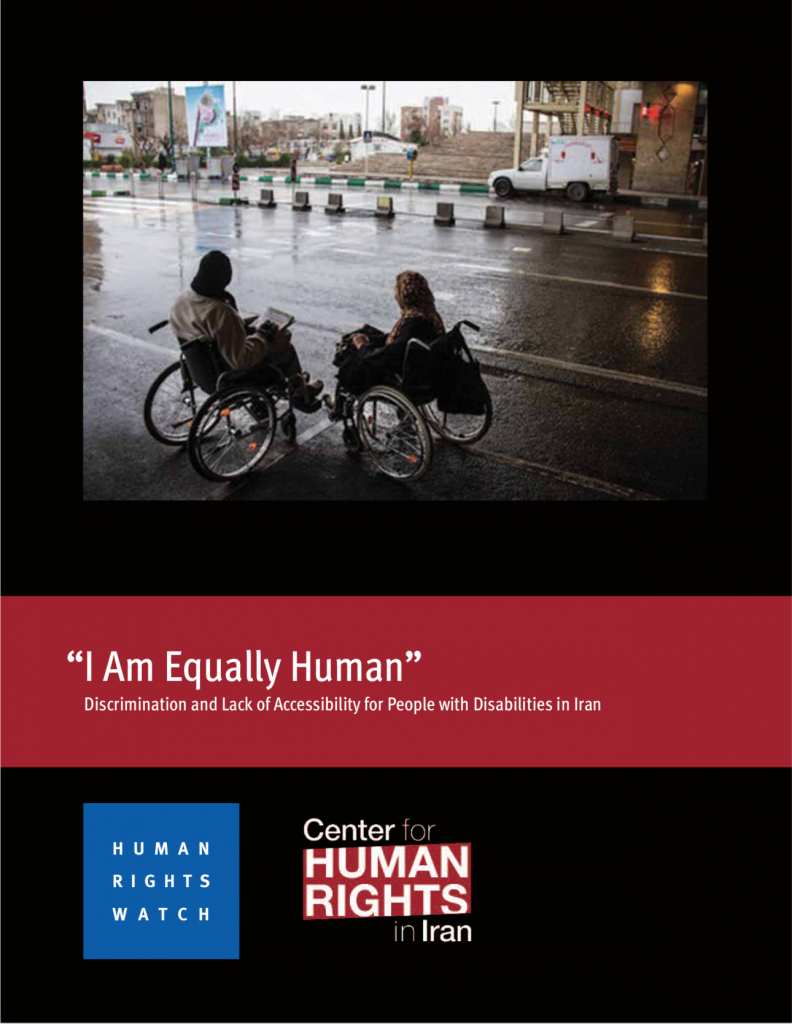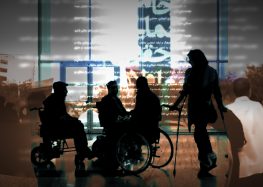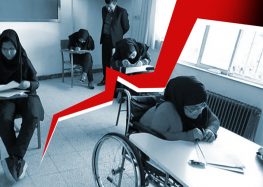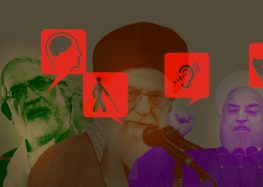Iranian Law Should Allow People With Disabilities to Make Their Own Legal Decisions
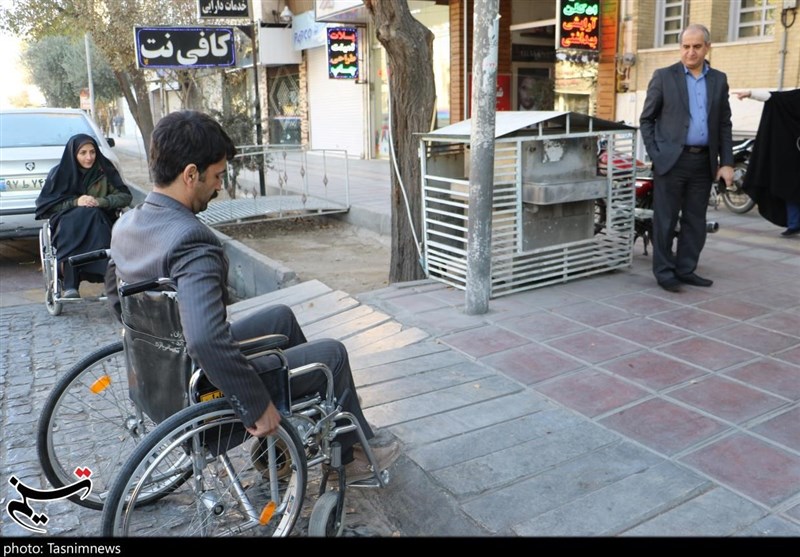
Ten years after Iran’s Parliament ratified the UN’s Convention on the Rights of Persons with Disabilities (CRPD), the government has failed to implement effective measures to enable individuals with disabilities to make their own decisions.
“When the legislature recently ratified the Law for the Protection of the Rights of Persons With Disabilities… we lost an opportunity to change the traditional custody regime that denies people with disabilities the right to make decisions,” a lawyer with expert knowledge about the issue told the Center for Human Rights in Iran (CHRI).
“In fact, Article 22 of the new law repeats the same things that exist in civil law that’s based on Shia theology from hundreds of years ago,” added the expert.
Most Iranian citizens with disabilities, especially those with mental or psychological disabilities, are unable to legally control or manage personal matters such as marriage, divorce, parental custody or their property.
Citizens, in general, have “legal capacity” under the principle of “equal rights under the law.” However, the Islamic Republic of Iran’s Civil Code denies legal rights to two groups of citizens who have been categorized as “incapacitated.”
People categorized as “lunatics” under Iranian law cannot make legal decisions in any circumstance and those who have been categorized as living with an “unsound mind” are not permitted to make financial decisions.
The “unsound mind” category also excludes people with disabilities from being a witness in a trial, filing a lawsuit, or taking possession of inherited property.
Instead, the law enables their parents or legal guardians to make decisions for them.
According to Article 22 of Iran’s Law for the Protection of the Rights of Persons With Disabilities, judicial authorities are required to appoint a guardian, if necessary, for persons with disabilities after consultations with the State Welfare Organization (SWO). If no qualified person is available, the court will appoint the SWO as legal guardian.
An activist for the rights of persons with disabilities told CHRI: “At the moment, our country practically does not recognize any decision-making rights for persons with mental disabilities. Yet, after many years of experience of working with these people, I’m convinced that if they were given proper training, they could make their own life decisions.”
The activist added that people with disabilities should be given easy access to experts who could assist them in making legal decisions that could improve their quality of life:
“I know a young man and woman with mental disabilities who for years have wanted to get married, but they haven’t been able to because both their guardians are opposed to it. Instead of their guardians, they should be able to consult with experts to evaluate the benefits and disadvantages of getting married.”
Article 12 of the UN’s CRPD urges governments to “recognize that persons with disabilities enjoy legal capacity on an equal basis with others in all aspects of life.”
It adds: “Subject to the provisions of this article, States Parties shall take all appropriate and effective measures to ensure the equal right of persons with disabilities to own or inherit property, to control their own financial affairs and to have equal access to bank loans, mortgages and other forms of financial credit, and shall ensure that persons with disabilities are not arbitrarily deprived of their property.”
In its interpretation of Article 12, the UN Committee on the Rights of Persons with Disabilities has emphasized that there’s no justifiable reason for people with disabilities to be denied legal capacity:
“States parties must holistically examine all areas of law to ensure that the right of persons with disabilities to legal capacity is not restricted on an unequal basis with others. Historically, persons with disabilities have been denied their right to legal capacity in many areas in a discriminatory manner under substitute decision-making regimes such as guardianship, conservatorship and mental health laws that permit forced treatment. These practices must be abolished in order to ensure that full legal capacity is restored to persons with disabilities on an equal basis with others.”
The committee’s guidelines add:
“Support in the exercise of legal capacity must respect the rights, will and preferences of persons with disabilities and should never amount to substitute decision-making … For many persons with disabilities, the ability to plan in advance is an important form of support, whereby they can state their will and preferences which should be followed at a time when they may not be in a position to communicate their wishes to others. All persons with disabilities have the right to engage in advance planning and should be given the opportunity to do so on an equal basis with others. States parties can provide various forms of advance planning mechanisms to accommodate various preferences, but all the options should be non-discriminatory. Support should be provided to a person, where desired, to complete an advance planning process.”
Accordingly, a person living with a psychological disability or a degenerative disease that affects their mental process could prepare a legal document specifying how they should be treated for any serious health issues, or whether they should be hospitalized, admitted to care centers, or treated with electric shock therapy.
Reyhaneh, the mother of a 16-year-old living with a mental disability in Iran, told CHRI: “I believe that individuals like my daughter can manage their own lives if they receive proper training. Right now, my daughter is free to do many things regarding her life and we permit her to act according to her own will and wishes. The only thing that worries her father and me are financial issues, and we don’t want her to be taken advantage of because of her condition.”
“I want there to be a support system in the country so that people like her can manage what they own without anyone taking advantage of their disability,” she added.
But Iran’s legal system is completely dependent on substitute decision-making for people with disabilities and that’s a violation of the country’s commitments under Article 12 of the UN’s CPRD.
In May 2017, the UN committee urged Iran to remove the derogatory language that is used to describe people with disabilities under Iranian law.
This step would enable people with disabilities to claim their right to legal capacity. But Iran has thus far failed to take any steps in this regard.

